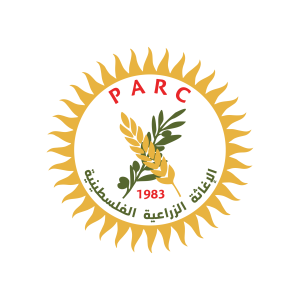Enhancing the Resilience of Palestinian Households Living in Rural Communities in the West Bank Through Livelihood and Protection Interventions" in the Villages of Nablus
2024-10-03
date_rangeThe Agricultural Development Association (PARC) and the Welfare Association have launched the project "Enhancing the Resilience of Palestinian Households Living in Rural Communities in the West Bank Through Livelihood and Protection Interventions," funded by Danish Muslim Aid.
The project was launched in the villages of Nablus Governorate through a series of workshops targeting the villages of Qusin, Al-Naqura, Bazariya, Burqa, and Duma, with the participation of 99 individuals from the villages, including farmers, young men and women seeking job opportunities, as well as heads and members of village councils. The workshops were also attended by Mr. Sameh Mohsen, a member of the Board of Directors of the PARC, the project team at PARC, and from the Welfare Association, Engineer Kamal Al-Masri, and Mr. Ahmad Al-Deek.
Mr. Sameh Mohsen, a member of the Board of Directors of PARC, welcomed the attendees and praised the deep relationship between PARC and the Welfare Association, which is considered a key partner in their joint developmental journey in Palestine.
Mohsen stated: "PARC has a long history of supporting Palestinian farmers and the agricultural sector since 1983. Despite the challenges we face, including the difficult humanitarian situation in the Gaza Strip, we have not been deterred from providing the necessary support."
He added: "Over the past year, we have reclaimed 9,800 dunums of agricultural land, constructed 64 kilometers of agricultural roads, trained 97 agricultural engineers, and installed 47 solar energy systems. We also provided sixty-seven small and medium grants, benefiting 222,000 people from our services. We are committed to continuing our support for the resilience of Palestinian households in rural areas by providing livelihood and protection opportunities."
Engineer Kamal Al-Masri expressed his happiness at launching the project, which targets women and protection committees in the villages of Nablus Governorate. The project aims to empower women economically and socially within their communities on an individual level and enhance the resilience of the communities as a whole through interventions by community protection committees.
Al-Masri also praised the strong relationship between the Welfare Association and PARC, which has been demonstrated through the implementation of a series of previous projects, not just this one. The goals of both institutions have aligned in developing the agricultural sector and building the capacities of workers, particularly in marginalized Palestinian rural areas.
Shadia Abu Awad, the project manager at PARC, presented an overview of the project, its intended objectives, the activities, and interventions to be implemented, and an explanation of the application process, criteria, and selection mechanism for the targeted women.
It is worth mentioning that the project targets one hundred rural households headed by women, who will receive technical and financial support to establish or develop their agricultural projects. During the project's duration, it is expected that the community protection committees in all targeted locations will be activated, their capacities built, and comprehensive risk reduction plans developed. The results of these plans will be used to implement a community initiative in each targeted location.

